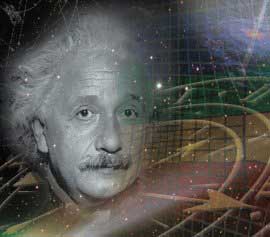Cosmic expansion: Einstein's black energy and cosmological constant
 According to a recent international study by Supernova legacy survey (SNLS), black energy miraculously plays a role in promoting the expansion of the universe and it could be Einstein's cosmological constant.
According to a recent international study by Supernova legacy survey (SNLS), black energy miraculously plays a role in promoting the expansion of the universe and it could be Einstein's cosmological constant.
SNLS, an international cooperation organization of 40 members, including about 20 researchers from the French National Center for Scientific Research (CNRS) and the French Atomic Energy Commission (CEA), has studied deeply. save the source of 'black energy' and determine its nature. Accordingly, astronomers measured the distance of 71 supernova explosions, in which the farthest explosion occurred when the universe was only half the age of the present.
During the measurement process, CNRS and CEA commented that the distances could be determined if ' black energy ' behaves like Einstein's cosmological constant or many other theories. What distinguishes these theories (about cosmological constant) is the expansion or non-expansion of black energy compared to the expansion of the universe. However, recent tests by SNLS show that there is no expansion at all and therefore, ' black energy ' is synonymous with Einstein's cosmological constant.
In 1917, Einstein introduced the cosmological constant into the cosmological equation to protect his idea that the universe was static. But, 30 years later, he had to admit his mistake and endorse the theory that the universe could expand. However, Einstein's constant has become popular since 1998 and it has been discovered that a mysterious energy called ' black energy ', which accounts for 73% of the matter in the universe.
This energy has great propulsion, far exceeding all the attraction between the different components of the universe. No ordinary matter can explain this.
According to scientists, Einstein's constants contribute to explaining the development of the universe as well as allowing us to learn about it.
- The 3D universe map contains 1.2 million galaxies that prove the universe expanded rapidly
- The mystery of dark energy
- Black energy really exists
- How big is the universe?
- Experimental mapping new space has the potential to solve the mystery of 'dark energy'
- Dark energy and dark matter do not exist as scientists think
- What is dark energy?
- Super black holes bombard the Earth with powerful cosmic rays
- Astronomers discovered something that current science cannot explain
- The truth is that the universe is expanding itself but expanding in what?
- Modifications of supernova type 1a
- Dark matter may be behind the universe's death
 Van Allen's belt and evidence that the Apollo 11 mission to the Moon was myth
Van Allen's belt and evidence that the Apollo 11 mission to the Moon was myth The levels of civilization in the universe (Kardashev scale)
The levels of civilization in the universe (Kardashev scale) Today Mars, the sun and the Earth are aligned
Today Mars, the sun and the Earth are aligned The Amazon owner announced a secret plan to build a space base for thousands of people
The Amazon owner announced a secret plan to build a space base for thousands of people